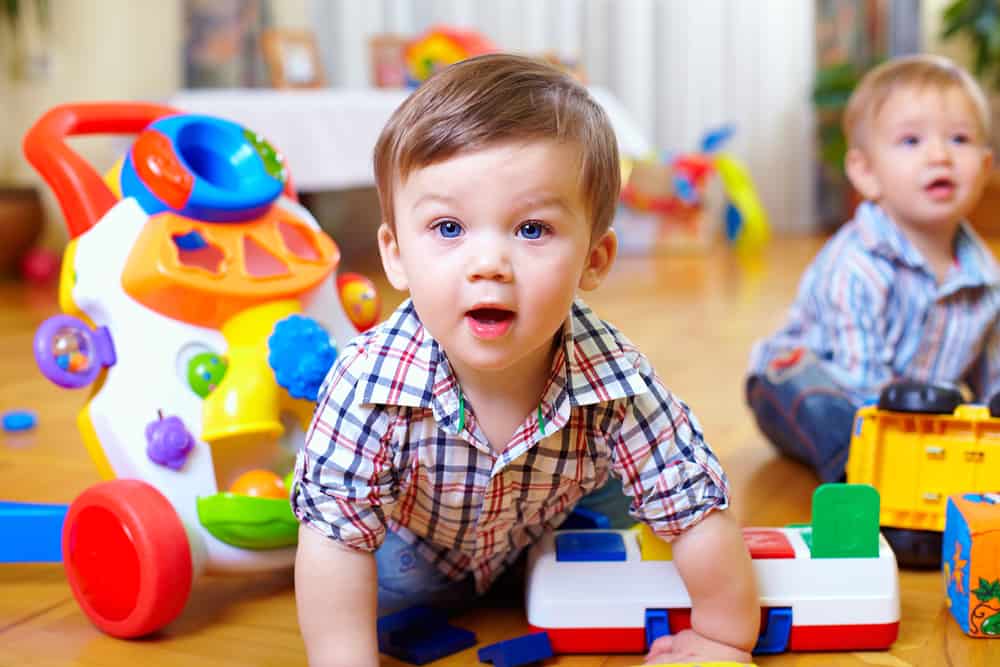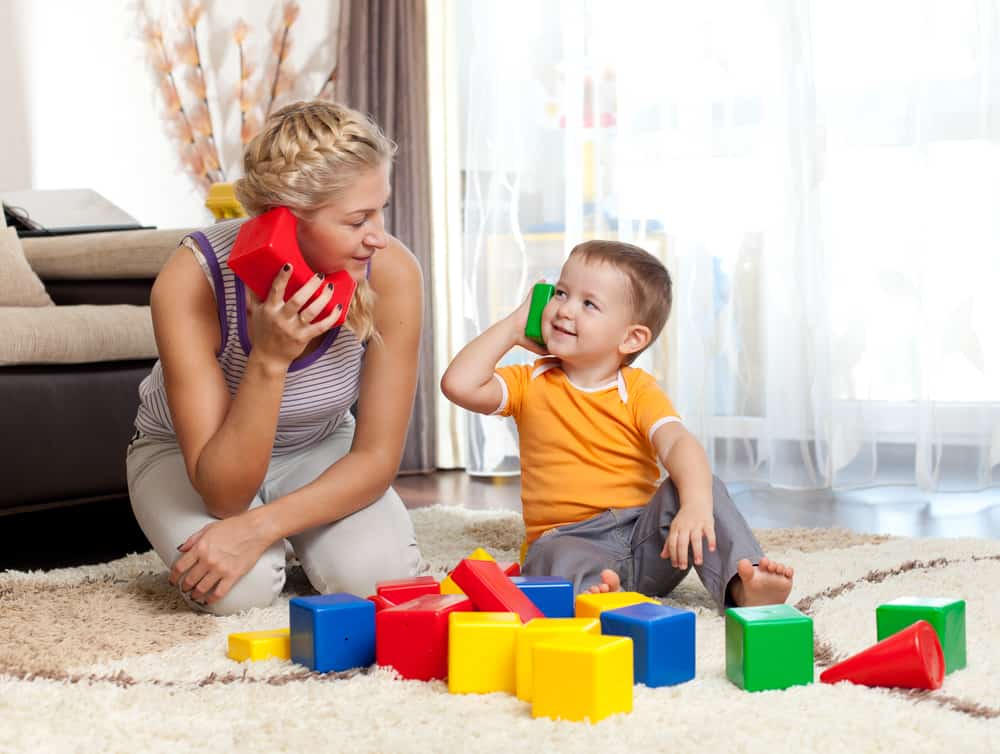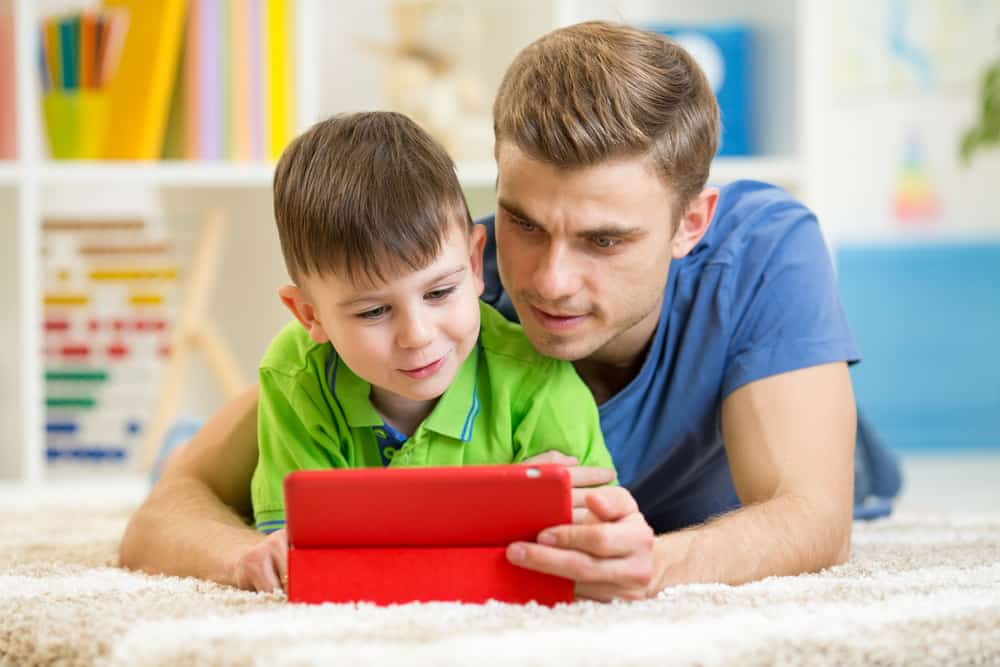Select your topic
Most popular
Feb 14, 2022 In the first part of this article, we cover the 6 stages of play development where you can determine in which stage your child is currently. The second part is all about fun games you can do with your child!
Jump to the second part of the blog, if you are searching for some practical advice, how to plan your toddler activities according to their current stage of play.
Play is one of the most important parts of childhood development. It performs crucial functions in the development of your child’s physical, cognitive, language, and social skills. Research has found that play is one of the best mechanisms for learning, and is essential for the development of appropriate social skills as well – all of which are required for speech and language development.
As a spontaneous or organized activity, play also provides your child with enjoyment, entertainment, and amusement. By moving through the various stages of play development, your child will have fun, become creative, develop concentration, be engaged, develop their language, and craft original ideas.
As children develop and grow, they move through different stages of social play which promotes their speech and language development and other important skills.
Please know that these stages are general guidelines and that your child may not reach all of the stages at the ages listed. That’s alright! So long as they move through each stage of play at a reasonable rate, you have nothing to worry about.

Play is so important for development that it actually starts at birth! Even though your child does not yet have a clear purpose, their random movements and gestures show that they are beginning to play. By moving their arms, legs, hands, and feet, your child is discovering how their body moves and how they can use it to play and interact with their environment.
Emerging when your child is still an infant, this type of play is most noticeable in toddlers who are able to hold objects and toys. At this stage, your child will start to play on their own and won’t be concerned with other children who may be playing nearby.
While it’s important for solitary play to remain a developmental “stage” that your child should move away from, it’s important to remember that your child, no matter their age, should have time for independent, solitary play. This stage is typically the longest stage of play.
This type of play becomes evident when your child is a toddler, though it can occur at any stage. Your child is highly observant of other children playing in this stage, and may ask other children questions about what they are doing; however, the don’t attempt to join in the play. This type of play is particularly noticeable in children who are shy, unsure of the rules of the game or are just hesitant to take part.
Like onlooker play, parallel play typically appears when your child is a toddler, though it too can appear at any stage. At this stage, your child still plays on their own (solitary play) but side-by-side with other children. Though it seems like there is no interaction, the children are actually paying attention to each other which begins to spark the desire for social play.
Ultimately, parallel play is the foundation in which more complex social stages of play are built, as it teaches children how to begin communicating with others by being attentive and asking questions.
Your child should begin interacting with other children at this stage since they will be more interested in other children as opposed to toys. Your child will begin to understand how to get along with others by sharing toys and asking more direct questions. When children play as a group in this stage, they tend to have a similar, common goal (such as building a blockhouse) but have no fixed rules or formal organization methods to reach that goal.
This stage of play lays the foundation for learning cooperation, problem-solving, and language, so your child will have a longer attention span and enjoy the social aspect of play.
Adult-like socialization happens in this stage of play. Your child will begin to share their ideas in addition to their toys and will follow established rules and guidelines. Fantasy play is introduced, and children will take on “roles” in the game. Sometimes, a leader of the group may emerge and assign roles to those participating in the game. Children often work together to solve a problem and they learn to cooperate with each other.
Other social skills that your child will learn at this stage include turn-taking, problem-solving, and flexibility in thinking and reasoning. Because this stage of play requires high social maturity, it can only be reached and accomplished once your child has gone through the earlier stages at their own pace.

If you suspect that your child may be delayed in their play development, then the first thing you need to do is not panic. Though there are general guidelines regarding typical childhood development, the truth is that all children develop differently, and it’s ok if your child is a little behind their peers.
Observe your kid and decide which stage of play they are at, then use some of the tips and guidelines below to help encourage and supplement your child’s play. You can also download Speech Blubs app. If you are still concerned after trying these activities and using our app, then you should consider contacting a speech therapist and having your child assessed.
Improve language & communication skills with fun learning!

If you’d like some more play ideas that you can do with your child, check out our article on “The Power of Play”.

Because we have developed our app for both you and your child in mind, Speech Blubs is a wonderful tool that you can use to promote and develop your child’s play skills. In fact, our app can be used from the solitary play stage all the way up to the social play stage and beyond!
We encourage play, language, and learning by providing video demonstrations given by real kids, as well as interactive games and activities for your child to do on their own and with you by their side.
Download Speech Blubs app today. You get a 7-day free trial and a free screener that helps you overview your child’d milestones. We’ll even give you a personalized report with actionable advice with the results!
For more information about the app write to us. Know that you have an ally in Speech Blubs and that our biggest success is seeing your child achieve their greatest potential.